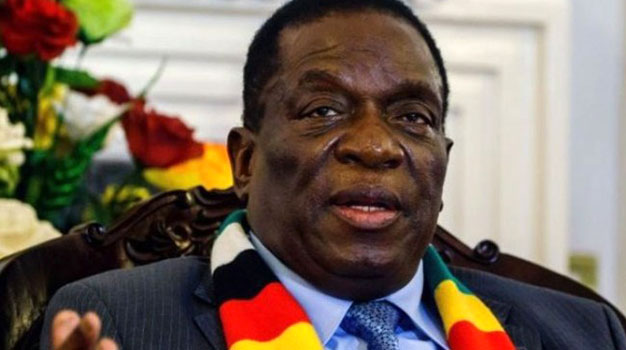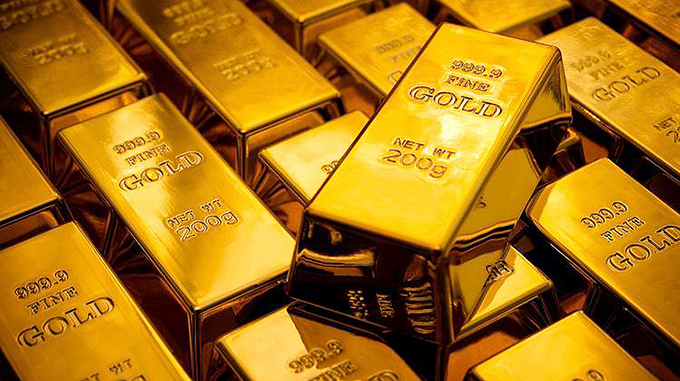EDITORIAL COMMENT: Zim should leverage resource diplomacy

Writing for the Australian Institute of Policy and Science in 1975, a scholar named G. O. Gutman attempted to explain “resource diplomacy” — a phenomenon that was gaining currency in the field of international relations.
He explained that whereas diplomacy was the management of international relations, resource diplomacy was “concerned with the question of how the disposal and acquisition of resources enters into the management of international relations”.
In his treatise, Gutman notes that resource diplomacy entails either the use of economic power for political purposes or the use of political power for economic purposes. Further, he regards resource diplomacy as some “game of strategy”. According to Gutman, the praxis of resource diplomacy raises its own political and moral questions.
In the same year, Gary A Hill of the University of Southern California also sought to explore the concept of resource diplomacy.
Hill explained resource diplomacy as the “politico-economic relationship between the producer and consumer governments, where multinational corporations often act as intermediaries. The dynamics of the relationship are described by attempted manipulations of consumers by producers based upon a position of resource strength,” he explains.
In recent times, China’s relationship with Africa — especially — has been seen to be anchored on the idea of resource diplomacy as the Asian giant’s evolving political and economic role in Africa has impacted on Chinese aid, trade and investment.
Scholars have taken interest in how these have affected the politics of specific African countries, and the extent to which it excites geopolitical competition (Power, Mohan & Tan-Mullins; 2012). We take this academic interest in the subject of resource diplomacy in light of President Mnangagwa’s assertion at the weekend that Zimbabwe would use diamonds as a foreign policy tool in its re-engagement with the West.
“Given our past, the diamond policy was always going to be more than a mining affair.
“It has become a foreign policy issue, both for better and for worse,” President Mnangagwa writes in his weekly column in our sister paper, The Sunday Mail.
“On the positive side, it means this policy is a potent tool for our engagement and re-engagement efforts. We make no qualms about this. Our abundant natural resources must lend depth and opportunity to our diplomacy and foreign policy goals,” he said.
This is classic resource diplomacy. And just as well, Zimbabwe’s resources stretch far beyond diamonds as the country is endowed with an impressive catalogue of minerals and other assets. It, therefore, bears a discussion on how Zimbabwe is going to partake this paradigm as the country seeks both political and economic fortunes in the Second Republic.
Over the past two decades, Zimbabwe experienced economic challenges that stemmed largely from sanctions imposed on the country by the United States of America, the European Union, Canada and Australia.
This led to massive de-industrialisation and the degeneration of the economy, rolling back the country some 20 years and to the tune of billions of dollars.
Unsurprisingly, the genesis of Zimbabwe’s troubles with the West concerned a resource called land, as the former British colony embarked on the agrarian reform to correct historical economic injustices. Zimbabwe could as well have — to placate the West — given up on the land, negotiate or reverse the exercise.
However, the country has been steadfast in asserting that land reform is irreversible.
That closes that frontier as an area of negotiation. (But there are other areas that could still be subject to agreements, as in the case of bilateral investment protection agreements.)
In the world of realpolitik, Zimbabwe still has something to give in return for diplomatic concessions from the West.
President Mnangagwa mentions diamonds, the country’s most precious mineral. Zimbabwe has some rich, world-beating deposits that international interests would be keen on.
In fact, these international interests in our diamonds have been there, especially following the discovery of alluvial diamonds in the east of the country.
The world was interested, more so the Americans, Canadians, Europeans and Australians, which made the Kimberly Process a huge theatre in those years. The politics of the time complicated issues.
In 2018, circumstances have changed a lot, with President Mnangagwa at the helm. Zimbabwe could leverage its power as a producer to influence consumers in the West.
Alternatively, there are human resources e.t.c, that could mediate the policy of such diplomacy.
It all has to be done with a note of caution, though, knowing the pitfalls that are likely where finite and depletable resources are concerned.










Comments